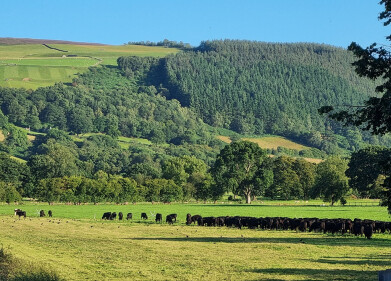Water/Wastewater
Are Americans Worried about Water Pollution?
May 05 2017
Americans are more worried about the quality of water in their lakes, reservoirs, rivers and drinking supplies than they have been in over 15 years, according to latest survey from Gallup. The poll was comprised of more than 1,000 telephone interviews taken from all 50 US states and has been conducted every year since its inception in 1989.
In that time period, concerns about water safety have fluctuated between 48% and 72% of the populace admitting to being “greatly worried” about the issue. In this year’s poll, 63% of Americans attested to their preoccupation over the subject – the highest proportion since 2001.
No. 1 environmental concern
Respondents were asked to give their level of concern on six different environmental issues. These were drinking water pollution, the contamination of lakes, rivers and reservoirs, air pollution, global warming, the extinction of plants and animal species and the loss of tropical rainforests.
The first two topics (both of which are focused on water pollution) were the biggest worries for Americans – as they have been for more than 25 years now. However, it’s thought that the recent surge in concern might be attributable to recent environmental disasters, such as the discovery of high concentrations of contaminants in the drinking water of Flint, Michigan.
In 2015, it was found that Flint’s water supply contained unhealthily high levels of lead. Subsequent investigations into the city’s water found that there were other contaminants in the water, as well, turning the spotlight onto the issue on a national level.
An ongoing problem
As well as the recent brouhaha in Michigan, the issue of water pollution in the United States has long been a contentious one. After the rapid rise of fracking as a method of energy generation across the country, many campaigners have suggested that the practice could severely endanger water quality, in addition to causing a myriad other environmental problems.
This has led to companies and scientists exploring more sustainable methods of mining and energy generation in general. Under the guardianship of President Obama, the US government had also sought to minimise the industrial impact on the nation’s waters and on its environment as a whole.
However, Donald Trump’s ascension to the White House has already seen him reverse some of the work done by his predecessor. Though his presidency is still in its infancy, there are widespread concerns that Trump's changes to US legislation could seriously jeopardise drinking water in the States.
Minorities and impoverished most concerned
The Gallup survey also revealed an interesting trend among respondents. While only 56% of white people surveyed confessed to great concern about water pollution, 80% of non-whites saw it a priority issue.
Similarly, those with a lower income were also more likely to be concerned than more well-off respondents. 75% of those earning $30,000 or less saw it as a chief concern, with only 64% of middle-income earners and 56% of high-income earners admitting the same.
It’s thought this discrepancy might arise from the fact that racial minorities and poorer communities are more likely to be affected by poor water quality, as demonstrated by the recent example of Flint. The Michigan city has a high percentage of black and lower-income inhabitants.
Events
Carrefour des Gestions Locales de L'eau
Jan 22 2025 Rennes, France
Jan 29 2025 Tokyo, Japan
Feb 05 2025 Nantes, France
Feb 16 2025 Kampala, Uganda
Feb 26 2025 Chennai, India




-as-feedstock.jpg)





